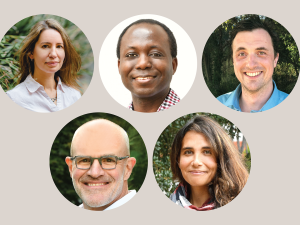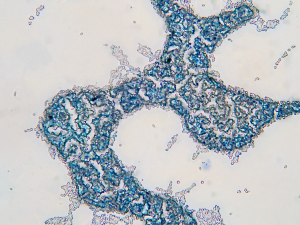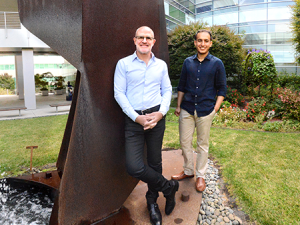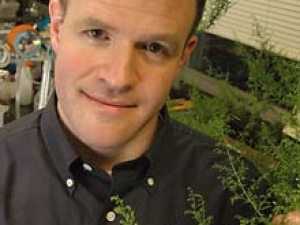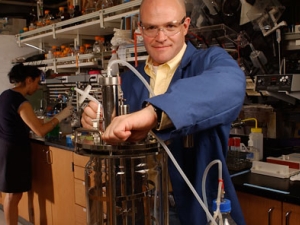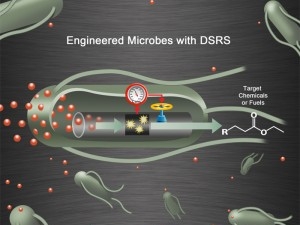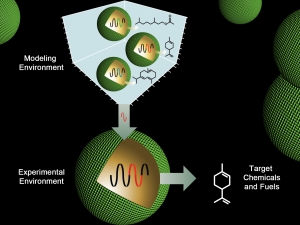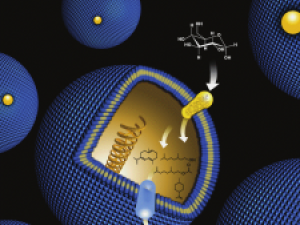Research Bio
Jay Keasling is the Philomathia Distinguished Chair in Alternative Energy and a Professor of Chemical & Biomolecular Engineering and of Bioengineering. The research in the Keasling Laboratory focuses on the metabolic engineering of microorganisms for the environmentally friendly synthesis of biofuels, commodity and specialty chemicals, and pharmaceuticals. To that end, they have developed a number of new genetic and mathematical tools to allow more precise and reproducible control of metabolism. These tools are being used in such applications as synthesis of biodegradable polymers, biofuels, flavors and fragrances, and pharmaceuticals.
Research Expertise and Interest
chemical engineering, biochemical engineering, metabolic engineering of microorganisms, environmentally friendly synthesis, biodegradable and recyclable polymers, production of biofuels and bioproducts, natural products
In the News
Indigenous Knowledge Helps Biotech Find New Drugs.
An Adjuvant Made in Yeast Could Lower Vaccine Cost and Boost Availability
2024 Bakar Prize Recipients Target Skin Disease, Spintronics and Tree Bark
An Anti-Cancer Drug in Short Supply Can Now Be Made by Microbes
A “living treatment” may ease a severe skin disease
Scientists chart course toward a new world of synthetic biology
Yeast produce low-cost, high-quality cannabinoids
American Academy of Arts and Sciences elects nine Berkeley faculty members
The American Academy of Arts and Sciences today announced the election of 213 new members, including nine UC Berkeley faculty members.
Life-Saving Dividends for Synthetic Biology Research: Microbial-Based Antimalarial Drug Shipped to Africa
A project begun some 13 years ago by Jay Keasling, the Associate Laboratory Director for Biosciences at Berkeley Lab and the CEO of the Joint BioEnergy Institute (JBEI), was culminated with an announcement on August 12 from the partnership of Sanofi, the multinational pharmaceutical company, and PATH, the nonprofit global health organization.
Malaria milestone ‘took a village’
On April 25, World Malaria Day, the nonprofit Zagaya released a video Illustrating why, in the words of UC Berkeley synthetic biologist Jay Keasling, “it took a village” to create an accessible treatment for malaria that will be essential to eradicating the disease.
Launch of antimalarial drug a triumph for UC Berkeley, synthetic biology
Twelve years after a breakthrough discovery in his University of California, Berkeley, laboratory, professor of chemical engineering Jay Keasling is seeing his dream come true.
Campus poised to join Obama’s BRAIN initiative
Three UC Berkeley scientists were among a gathering of the nation’s top scientists at the White House this morning (Tuesday, April 2) as President Barack Obama announced a major national initiative to develop new tools to create real-time traffic maps of the human brain.
Jay Keasling: Using microbes to create the next generation of fuel
Jay Keasling, UC Berkeley chemical engineer and leader in the field of synthetic biology, is featured on CNN’s “The Next List” for his work on using microbes to create the next generation of fuel.
Pilot program to bolster biophysical sciences’ innovation pipeline
The new Bakar Fellows Program is designed to help early-career Berkeley faculty commercialize promising research discoveries.
New synthetic biology technique boosts microbial production of diesel fuel
Joint BioEnergy Institute researchers have developed a dynamic system for regulating metabolic pathways
CAD for RNA
Joint BioEnergy Institute (JBEI) researchers have developed computer assisted design (CAD)-type tools for engineering RNA components to control genetic expression in microbes. This holds enormous potential for microbial-based production of advanced biofuels, biodegradable plastics, therapeutic drugs and a host of other goods now derived from petrochemicals.
Bacteria turn switchgrass into advanced biofuels
Jay Keasling and his colleagues at the Joint BioEnergy Institute have engineered bacteria to turn switchgrass – a hard to digest plant – into gasoline, diesel and jet fuels. This could vastly reduce the cost of producing plant-based fuels to replace fuels from oil and coal.
The Future of Metabolic Engineering – Designer Molecules, Cells and Microorganisms
Jay Keasling, a leading authority on metabolic engineering, envisions a future in which microorganisms are tailor-made to produce specific chemical products, such as biofuels and pharmaceuticals, from inexpensive and renewable starting materials. He has written a paper on the subject for the journal Science.
NSF grant to launch world's first open-source genetic parts production facility
Bioengineers from the UC Berkeley and Stanford University are ramping up efforts to characterize the thousands of control elements critical to the engineering of microbes so that eventually, researchers can mix and match these "DNA parts" in synthetic organisms to produce new drugs, fuels or chemicals.



